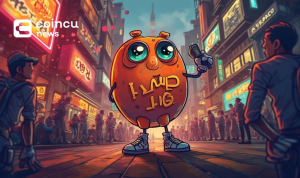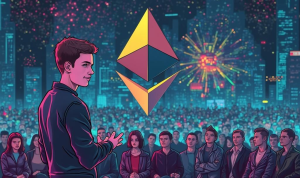The cryptocurrency investment market is swiftly adapting, shaped by innovations in finance and AI technology. Investors are increasingly supporting projects that can quickly adapt to changes and scale effectively as the influx of new cryptocurrency traders grows.
Solana may be at risk of falling behind, whereas BlockDAG (BDAG) seems to be advancing, largely because it has proactively addressed these very issues. Users have experienced outages with Solana, leading to doubts about its decentralization. Conversely, BlockDAG has committed to rapid adaptability and scalability, shaping its core identity around these capabilities.

The Rise of Solana
Introduced in 2020, the Solana blockchain has swiftly earned a reputation for its rapid transaction speeds and low costs, attracting developers and users who prioritize frequent and economical transactions. Solana combines Proof of History (PoH) with Proof of Stake (PoS) to facilitate quick processing, which is particularly suitable for NFTs and gaming applications.

Yet, the notable speed of Solana comes with compromises, such as intermittent network disruptions and issues with decentralization, raising questions about its stability and reliability.
BlockDAG’s Industry Innovation
BlockDAG has quickly ascended in the crypto market, driven by its integration of Directed Acyclic Graph (DAG) technology with Proof of Work (PoW). This combination is engineered to enhance scalability and ensure security.
BlockDAG’s DAG structure supports the processing of multiple transactions concurrently, unlike traditional blockchains that handle transactions one at a time. This arrangement significantly increases transaction throughput and addresses a crucial scalability challenge. Meanwhile, PoW demands computational efforts to confirm transactions, thereby protecting the network from attacks while maintaining efficiency.

BlockDAG’s presale achievements underscore significant market interest, with over $116 million raised, 15 billion coins distributed, and early adopters achieving a 2100% ROI. Currently in its 25th batch, the ongoing presale of BlockDAG continues to draw interest, aspiring to rank among the foremost blockchain platforms in terms of speed and security.
Scalability Challenges Ahead
BlockDAG’s implementation of the Directed Acyclic Graph (DAG) structure significantly enhances its scalability, offering robust capabilities to manage high transaction volumes without congestion.
In contrast, Solana, despite its high transaction throughput, has faced substantial challenges such as performance issues, outages, and bottlenecks during peak usage times. BlockDAG’s design mitigates these issues by allowing transactions to be processed concurrently, rather than one at a time, thus enhancing scalability without compromising the stability of the network.

This architectural choice ensures that as demand increases, BlockDAG maintains optimal performance, free from the slowdowns or disruptions observed with Solana. As BlockDAG’s ecosystem expands, its unique technological framework is capable of accommodating a large-scale network, effectively meeting the evolving needs of its users and developers.
Decentralization Concerns with Solana
BlockDAG places a high priority on decentralization, enabling widespread participation in network security without the intensive hardware requirements associated with platforms like Solana. Solana, while faster, has been criticized for its heavy infrastructure demands necessary for running validator nodes, which limits accessibility and pushes toward a more centralized framework. With only about 2,000 active validators, Solana’s structure risks centralizing control among a limited group of affluent operators.
By contrast, BlockDAG’s technologies foster a more inclusive and decentralized network, broadening participation and enhancing both security and resilience by diluting the potential for dominance by any single entity. BlockDAG’s dedication to genuine decentralization is particularly appealing to cryptocurrency traders who value an open and fair network.
Closing Thoughts
As the cryptocurrency sector continues to expand, speed and scalability remain critical. While Solana faces challenges in scaling efficiently, BlockDAG has been designed from the outset with scalability in mind.
BlockDAG focuses on continuous, stable operations, sidestepping the stability challenges that have occasionally hindered Solana. This proactive and anticipatory strategy keeps the market engaged—BlockDAG not only prepares for future challenges but also proactively addresses them. With BDAG coins priced attractively at $0.022, it offers a compelling option for those seeking a network capable of managing increased demand and adapting to evolving market dynamics.

Website: https://blockdag.network
Presale: https://purchase.blockdag.network
Telegram: https://t.me/blockDAGnetworkOfficial
Discord: https://discord.gg/Q7BxghMVyu
| Disclaimer: The text above is an advertorial article that is not part of Coincu.com editorial content. |























